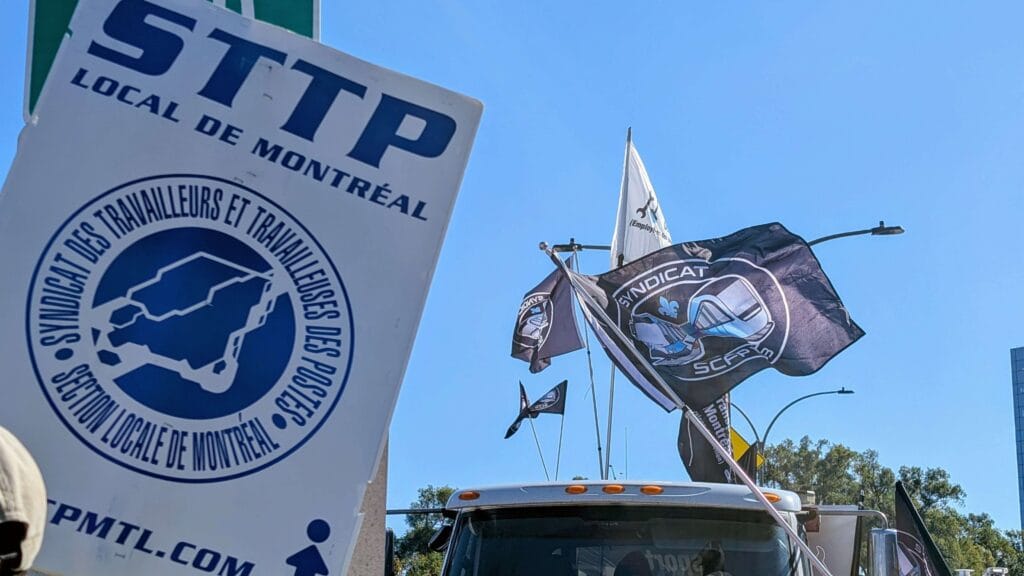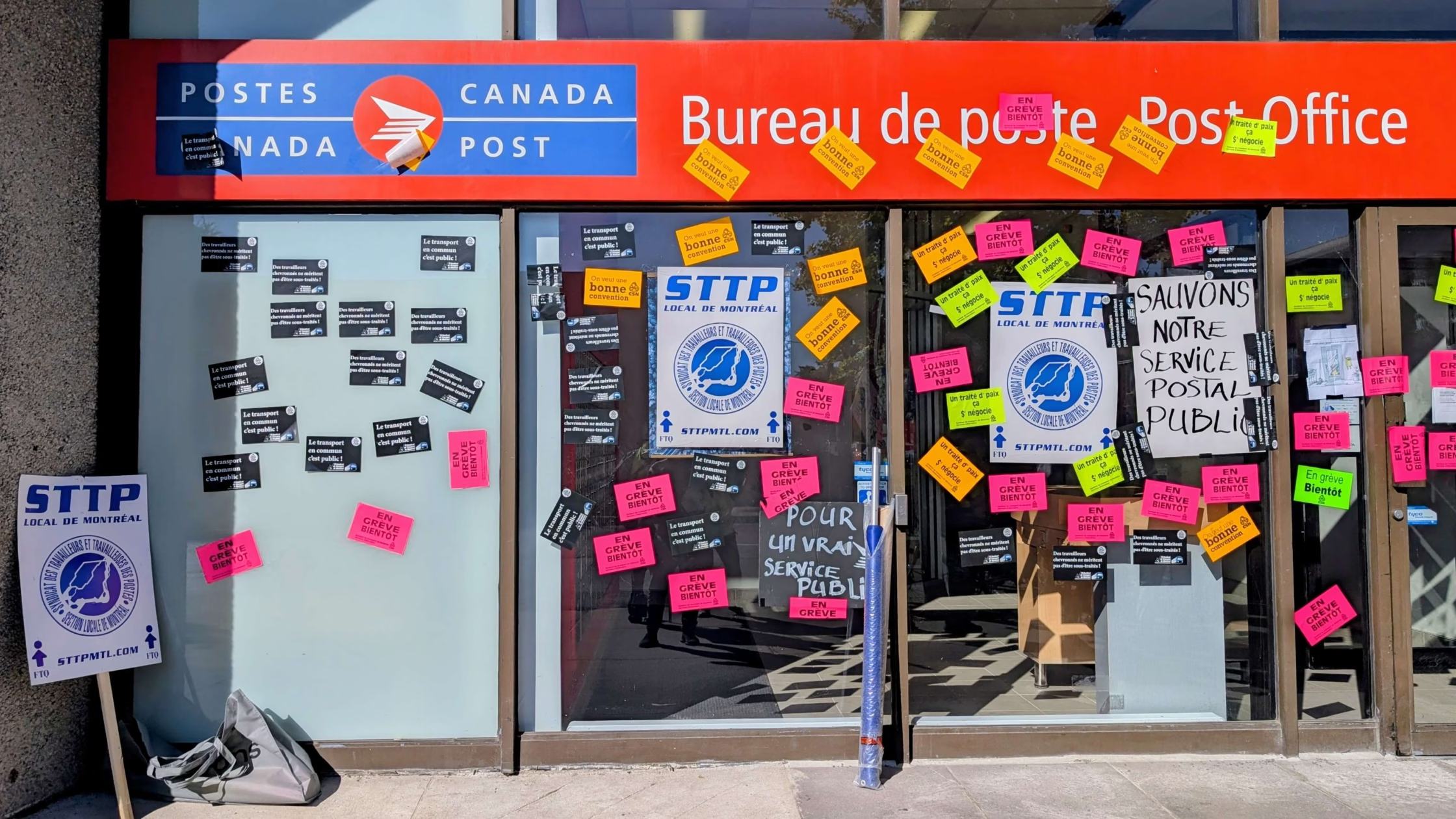On Friday morning, more than 75 striking postal workers left the Chabanel post office to join hundreds of Société de transport de Montréal (STM) employees, also on strike, at the corner of Saint-Laurent and Crémazie. The gathering, filled with energetic handshakes and hugs, was intended to show unity in the face of the privatization offensive coming from all levels of government.
“We’re going to join the STM workers because they understand the same thing we do: we’re no longer fighting for a collective agreement at this point. We’re fighting for the survival, pure and simple, of public service,” said Guillaume Brodeur, union representative for the Canadian Union of Postal Workers (CUPW) at Chabanel.
“The message we want to send today is that attacking one union, attacking one bargaining unit, is attacking them all,” added Pat Bélisle, director of the CUPW Montreal Organizing and Information Committee.
Canada Post workers have been on strike since Thursday evening, following the government’s announcement of its intention to close regional offices and abolish door-to-door delivery. On the public transit side, unions are denouncing outsourcing.
“[The managers] say to themselves, ‘We’re going to save money. It’s going to cost $40 an hour instead of $42 with benefits,’” explains Brodeur. “But they’ll wake up in three years, and it’s going to cost $120 because of the private agencies.”

The president of CUPE 1983 (subway and bus drivers), Frédéric Therrien, warns the STM and Quebec City: “Get ready for the wave that’s coming. If our CEO thinks he’s going to push us against the wall, we’re going to push him into the field.”
He criticizes the transit corporation’s management, which talks about “modernizing” negotiations and “having courage,” but refuses to demand the necessary funding from the government to operate. It should be noted that in February, the STM also announced its decision to outsource paratransit services to a private company.
Cut Then Privatize
For the unions, the logic is familiar: weaken the service then offer it to the private sector. “Public services are cut until they lose their relevance. After that, the public is told, ‘You see, you’re paying too much for this. We’re going to cut these services,’“ insists Bélisle. For his part, Brodeur reiterates the usefulness of the public postal network: “People realize this. It costs $70 to send a letter to Hamilton through private companies.”
They accuse Ottawa of not investing and of preparing to transfer services to private companies. They also mention the rise of Intelcom in the parcel business and point out that it belongs to the brother of Mélanie Joly, a minister in the Carney government.
“It’s media spin to make the public believe that Canada Post is a sick animal that needs to be put out of its misery,” says Brodeur.

Bélisle, for his part, describes it as a squandered asset: “In the mid-1990s, there were more post offices in Canada than there were McDonald’s. Today, we’re being beaten by Wendy’s,” he says with a dry chuckle. “Why was everything sold off? To rent it back to the private sector, to once again make money for our friends at SNC-Lavalin, and so on.”
Bélisle adds that the Crown corporation’s management is racking up deficits and continuing to pay itself bonuses while negotiations stall. He is scathing in his assessment of the boss: “I think Doug Ettinger is writing a guide on how to completely kill a company. It’s incredible how his work doesn’t even seem to be questioned.
Brodeur continues: “Last year, they said they were bankrupt and needed a billion-dollar loan from the government. Two weeks later, they changed their tune, and Purolator bought Livingstone International for a billion dollars.” Purolator is 91% owned by Canada Post.
Union members argue that the losses presented to the public stem from an investment plan of just over $4 billion in infrastructure and are then used as an argument to justify cuts, citing a supposed deficit of nearly $4 billion since the announcement.
Hence their fear of a scenario paving the way for privatization: “After that, it’s a little hard to say that it’s a conspiracy theory to think that his job may be to undermine Canada Post until it is small enough to be privatized. That would allow a return to the good old recipe of privatizing profits and socializing deficits.”

The Fight Continues
Faced with all this, postal workers are tired. But morale is rising, says Brodeur: “We were pretty discouraged last Friday. Still on strike! It’s tough. But what I’ve seen is that over the course of the week, people have started to lift their heads again because we know our cause is just. We’re not the greedy ones. The greedy ones are the ones who are organizing the heist of the century.”
Bélisle concludes by addressing his colleagues: “I understand that you’re tired, but when the enemy is at the gates, we have no choice but to fight until we have no energy left.”


Be part of the conversation!
Only subscribers can comment. Subscribe to The North Star to join the conversation under our articles with our journalists and fellow community members. If you’re already subscribed, log in.